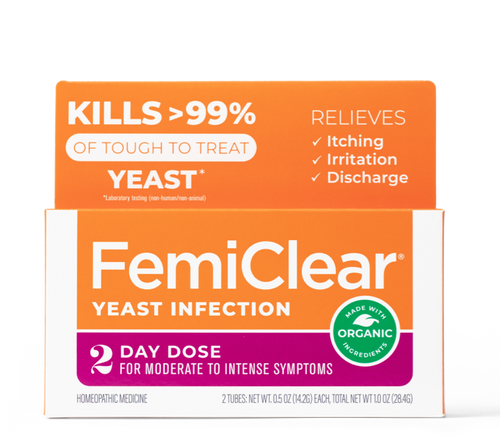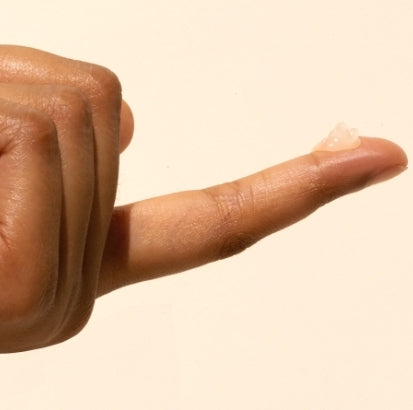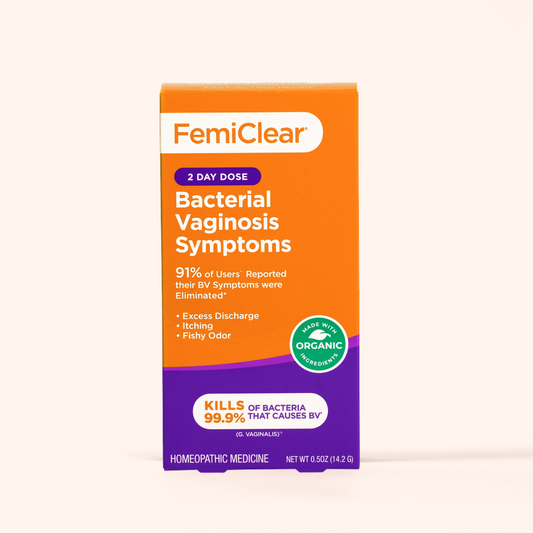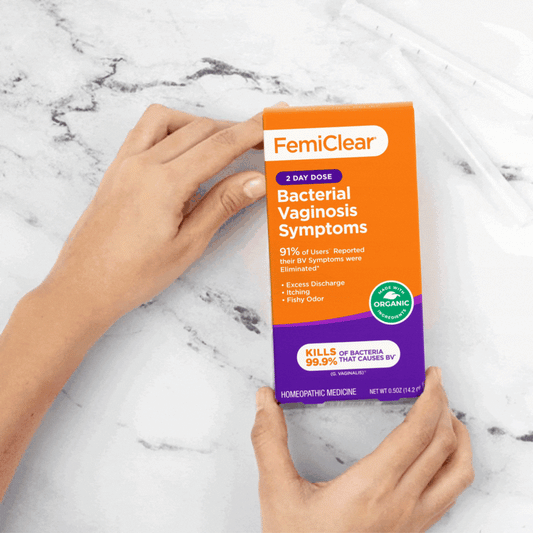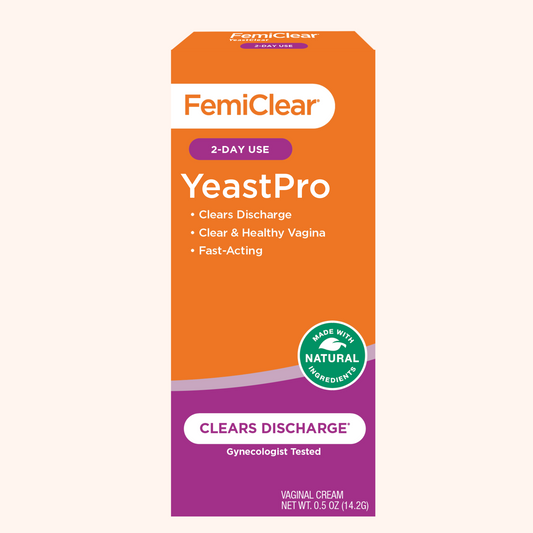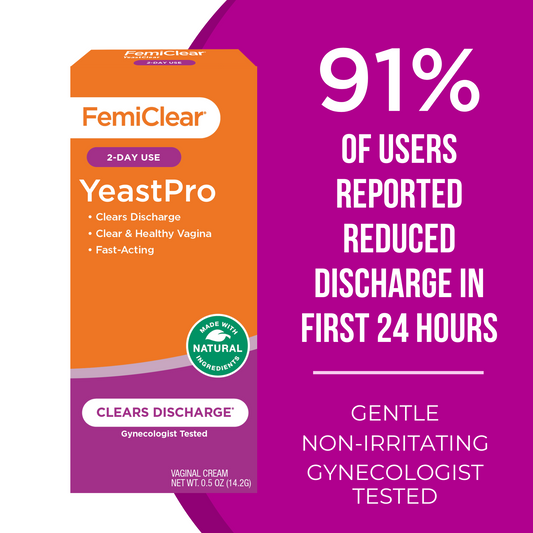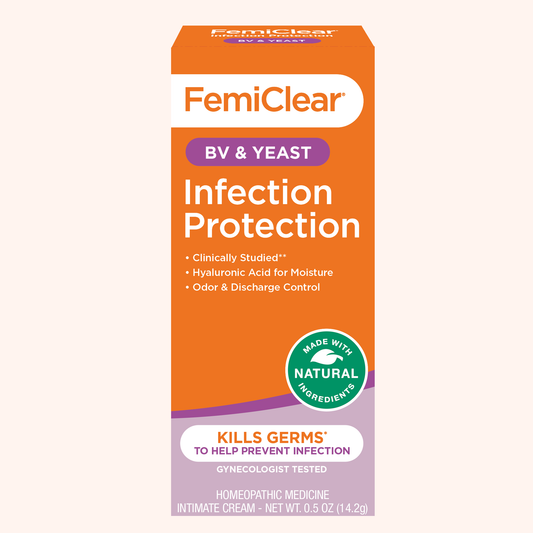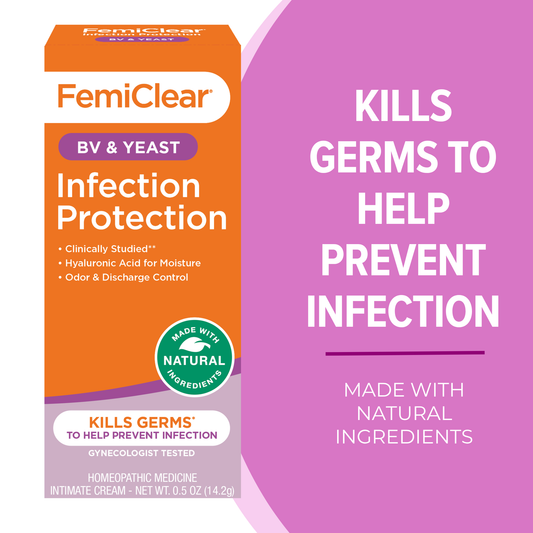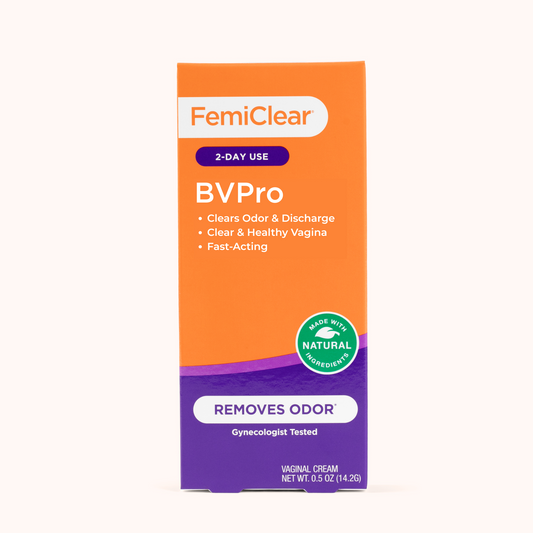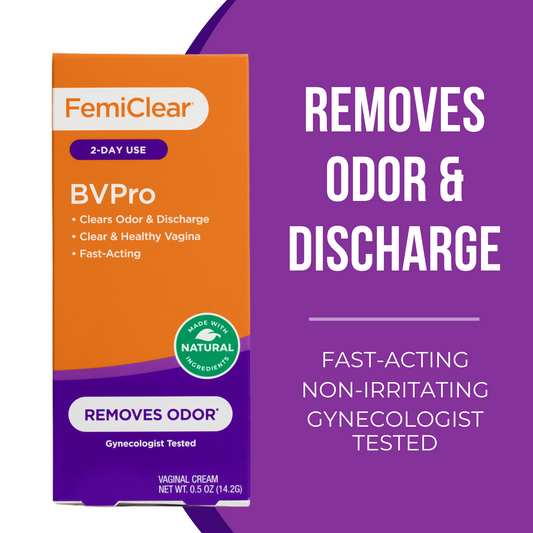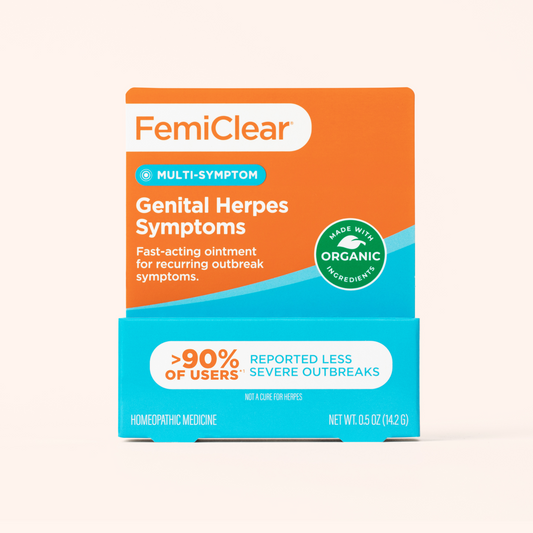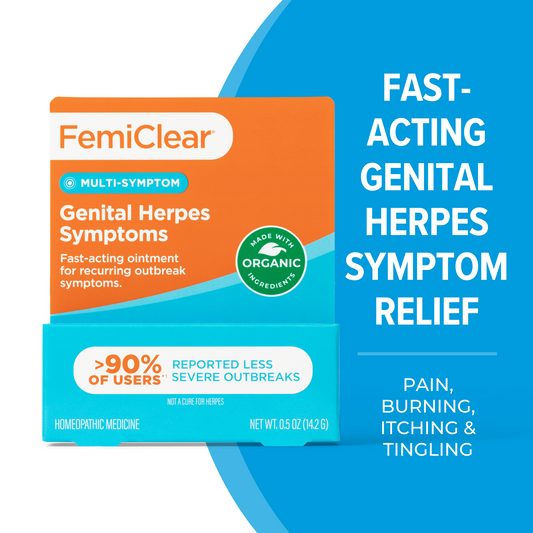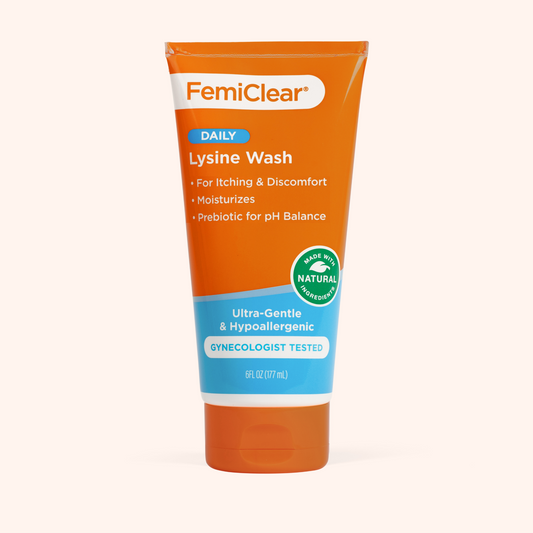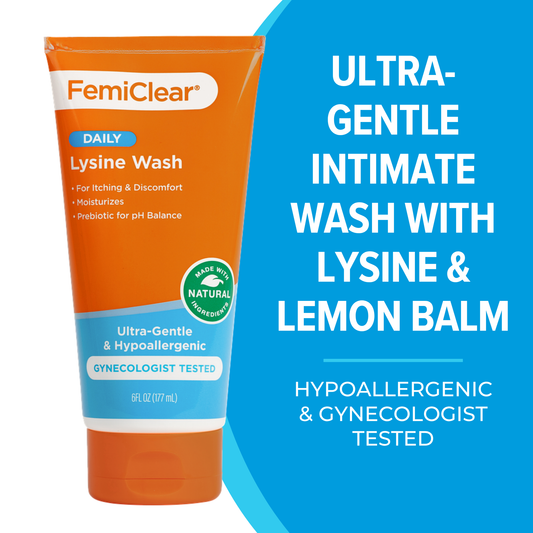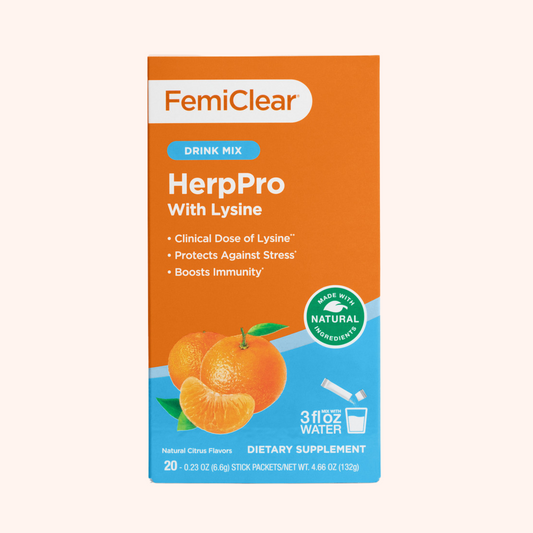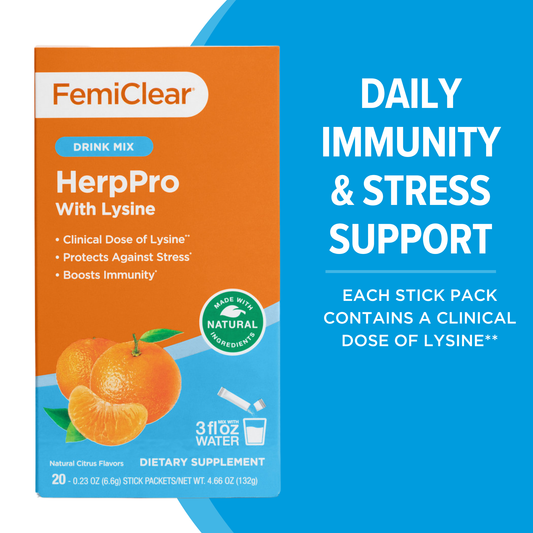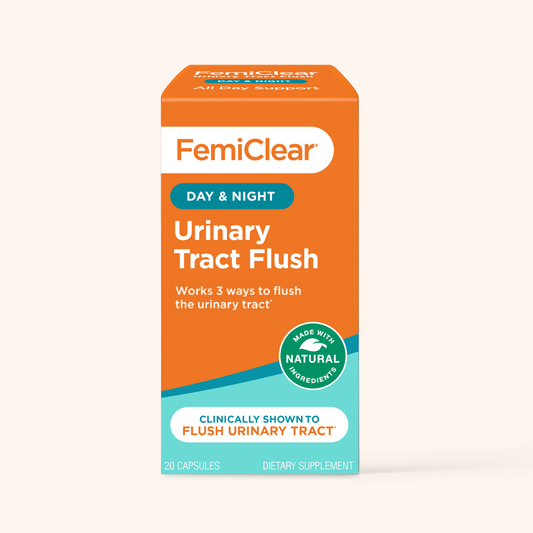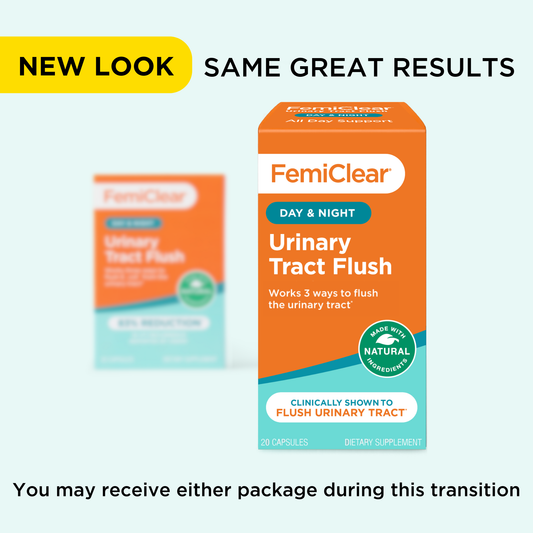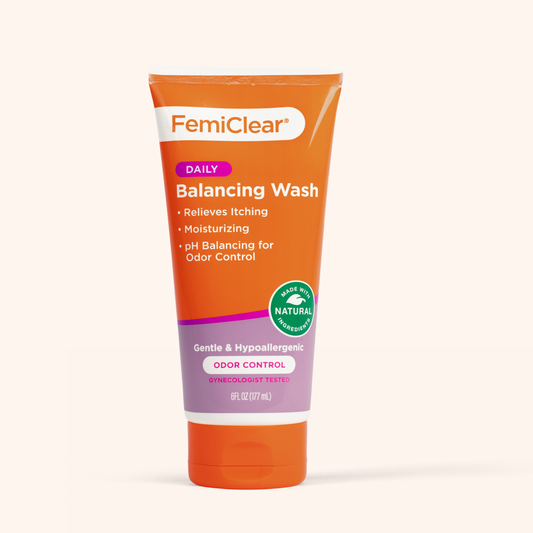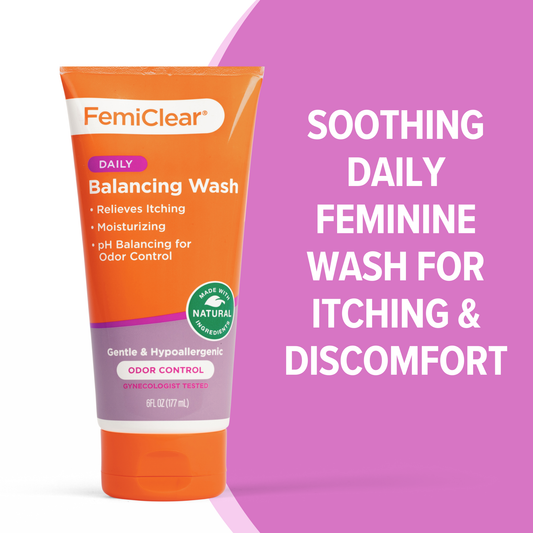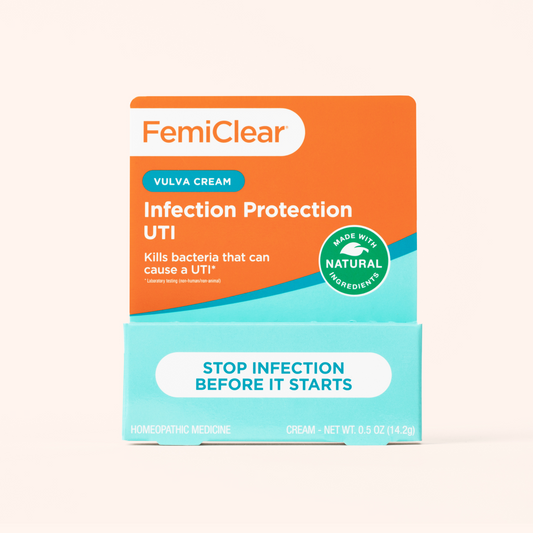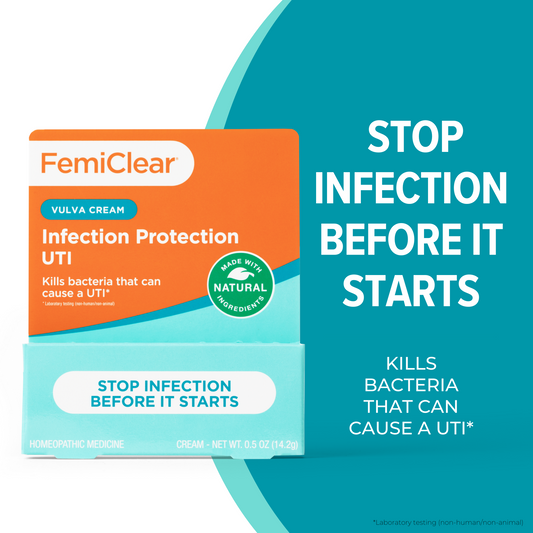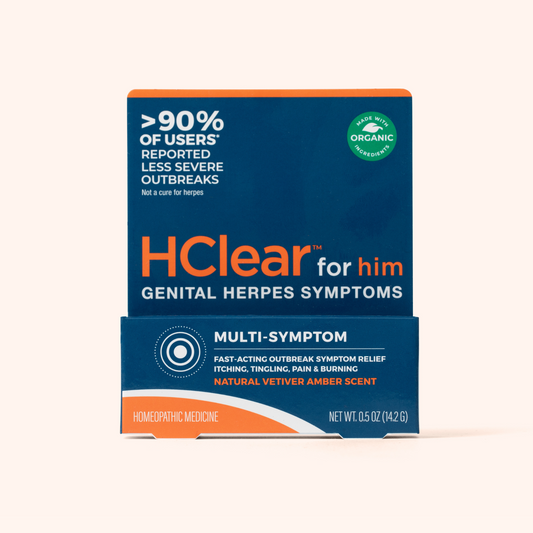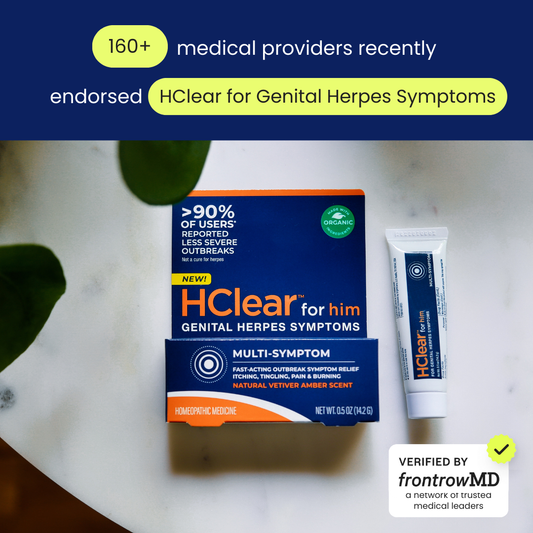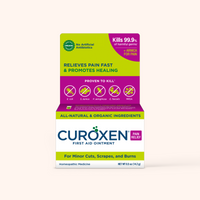Table of Contents
Related Articles
Which All-Natural Feminine Care Solution Is Right for You?
Written by Carrie Murphy, Doula Dec 13, 2021
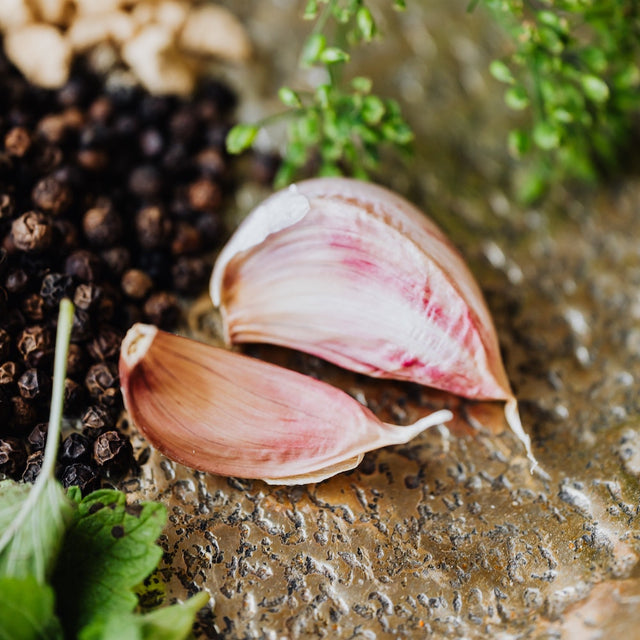
You have an itch in your vagina—and you know from experience that it’s a vaginal yeast infection. Again?! Yeast infections aren’t fun, but the good news is that they are very treatable, including natural options.
What is a yeast infection?
A yeast infection (sometimes called vulvovaginal candidiasis) occurs when an overgrowth of candida albicans yeast occurs in the vagina. This yeast is present in your vagina all the time, but an infection happens when this yeast overtakes the presence of other more beneficial bacteria and alters the balance in your V. This can happen for a number of reasons, including pregnancy, hormone changes, a change of sexual partner, use of antibiotics, immune issues, and more.
And once the balance is off, the symptoms begin. Yeast infections come with annoying and sometimes painful symptoms such as itching, white discharge, pain with urination, and overall inflammation in the vulva and vagina. Ouch!
Common solutions for yeast infections include antifungal medications and harsh over-the-counter treatments that use ingredients that are derived from synthetic ingredients. If that doesn’t sound appealing to you, don’t worry—other options exist!
Don’t worry—you don’t have to brave the black hole of the internet to find yeast infection remedy solutions that are non-toxic. Hold off on Googling “home remedies for yeast infections” because we’ve got the lowdown on these remedies here in this article. From yogurt to garlic, we’ve rounded up some of the most common options out there for at-home yeast infection solutions, as well as the evidence regarding how well they work.
Yogurt and Kombucha for Natural Vaginal Itch Relief
Probiotics such as yogurt or kombucha are popular folk remedies for yeast infections. This is because both of these healthy foods are fermented, meaning they contain what is commonly called “good bacteria.” And as a reminder, yeast infections happen when the not-so-good bacteria (usually a type of yeast called candida) overgrow in the vagina.
Specifically, yogurt contains lactobacillus and sometimes bifodobacterium. According to the journal Nutrients, Kombucha usually contains Bacillus coagulans, with a few lactobacillus bacteria as well, depending on the brand or strain of kombucha drink. The kind of good bacteria your vagina needs? Yup, it’s lactobacillus! So when the good guy bacteria in the healthy food matches what your vagina actually needs to stay balanced, it makes sense why using or consuming kombucha or yogurt has become a popular method of dealing with a vaginal yeast infection. After all, your microbiome (the overall ecosystem of bacteria in your entire body) is a key aspect of your health, helping with your immunity, digestion, skin condition, and more.
It’s not a good idea to insert kombucha or yogurt directly into the vagina to treat vaginal itching. But consuming these healthy foods is not a bad idea if you’re experiencing a vaginal yeast infection. Giving your body good bacteria (including through your digestive system) can be a great way to help your vaginal flora become balanced...although it’s important to know that consuming them orally will not cure a yeast infection And yes, some studies have shown that these good probiotics actually survive and populate the human gut.
Apple Cider Vinegar for Vaginal Itch Relief
Similar to the actions of yogurt and kombucha, apple cider vinegar (ACV) contains compounds that are thought to promote beneficial bacteria in the body, namely, one called acetic acid. Like those, it is also a fermented food. ACV (as its commonly abbreviated) is thought to work on candida because of its acidity profile.
However, research on apple cider vinegar as a solution for a vaginal yeast infection or vaginal itching is rare and limited. One 2017 case study found that ACV effectively treated a chronic yeast infection in one woman. Another study concluded that ACV was effective in fighting candida in oral infections—but this is not necessarily applicable to infections with the same issue in the vagina.
It is not appropriate to apply ACV directly to the vulva or the vagina due to the acidity of the product. It can burn or otherwise damage the sensitive tissue in these areas. If you want to use AVC to support your body when you have a yeast infection, do so orally by diluting it in water, taking ACV gummies, or mixing it into a salad dressing.
Coconut Oil for Natural Vaginal Itch Relief
These days, everyone touts the benefits of coconut oil. This popular oil, made by pressing fresh coconut meat, is used for everything from baking to beauty products. But why is it considered a remedy for vaginal itching?
Well, that’s because coconut oil itself has properties that can help kill yeast and other pathogens. Some research indicates that coconut oil may be both antifungal and antimicrobial. One 2007 study found that coconut oil was helpful in fighting candida albicans (one of the yeasts that commonly causes a vaginal yeast infection).
While coconut oil is a soothing way to help solve a vaginal yeast infection, it may not be strong enough to kick the infection out of your body. Still, if you have some on hand, it may not be a bad idea to apply it topically to your vulva and see if you feel any relief. Coconut oil does not have any side effects and is generally safe to use. The moisture you get from the oil may help quell itching, too.
Garlic For Natural Vaginal Itch Relief
There are some studies that have found that garlic does have an effect on fighting yeast. Garlic is known to be antimicrobial and antibacterial, which is why it’s a common ingredient in folk remedies for immunity. Some research has also found it to be antifungal.
One 2010 study found that a cream made with garlic and thyme was as effective at treating candida vaginitis (a yeast infection) as clotrimazole, a medication. In another, fresh garlic extract was found to be effective at altering the expression of genes that affect candida albicans.
Some people recommend inserting whole cloves of raw garlic into the vagina to soothe vaginal itching—we don’t necessarily recommend this method, as anything you insert into your vagina can be a hazard and alter your vaginal microbiome. One case study did find that a vaginal ureaplasma infection was successfully cured with this method—but remember, one case does not necessarily mean a remedy is safe or right for you and your situation.
But it’s safe to say that you can feel free to eat as much garlic as you want as a way to prevent or remedy a vaginal infection! Pile it on your pizza, add it to your soup, or mix up some garlicky salsa. You can also consider taking garlic capsules, which may be less labor-intensive (and better if you’re trying to avoid garlic breath!)
Natural Yeast Infection and Vaginal Itch Relief with FemiClear
As you can see, there are quite a few home remedies for vaginal itching and yeast infections out there, with varying degrees of efficacy. If you want to chug kombucha, chop garlic, and eat yogurt on the regular, doing these things may just make a difference in your vaginal symptoms.
But if you’d like a tried-and-true, natural, over-the counter-option to soothe itching and other symptoms, we at FemiClear have multiple options for you.
For yeast infections, FemiClear® offers three options -- 1 Day Dose for mild infections and 2 Day Dose for tough-to-treat yeast. All of these options are all-natural. All three include the ointment with active ingredients for the vagina and an additional vaginal itch cream. The itch relief ointment is designed to help the itching stop as the product begins to work on killing the yeast overgrowth.
If you’d like to keep your vaginal microbiome in good balance, taking a feminine probiotic is a go-to for daily defense. Another way to soothe itching is with our Daily Soothing Feminine Wash. Our super gentle, hypoallergenic wash is specially formulated with prebiotics that supports good bacteria and ingredients that calm inflammation, like aloe and chamomilla.
However you decide to seek relief from vaginal itching and yeast infections, we’re hoping your V is back in balance sooner rather than later.
Written by Carrie Murphy, Doula Dec 13, 2021

Yeast Infection + Itch Relief - 2 Day Dose | Ointment
Kills over 99% of Tough to Treat Yeast*
Learn More